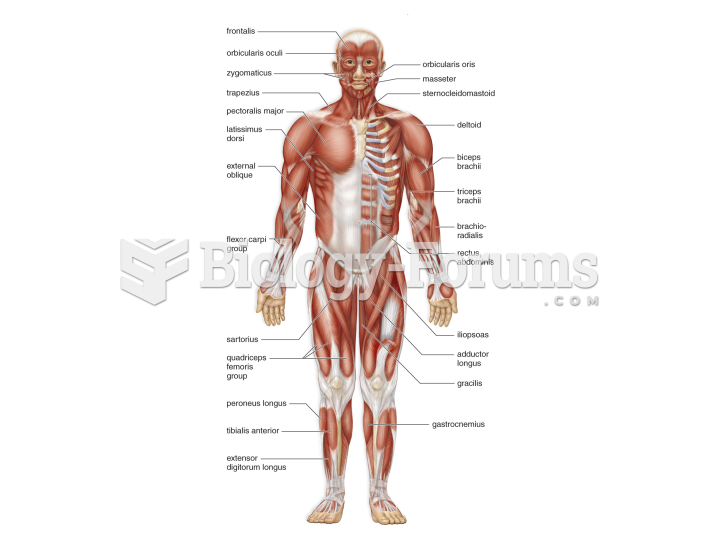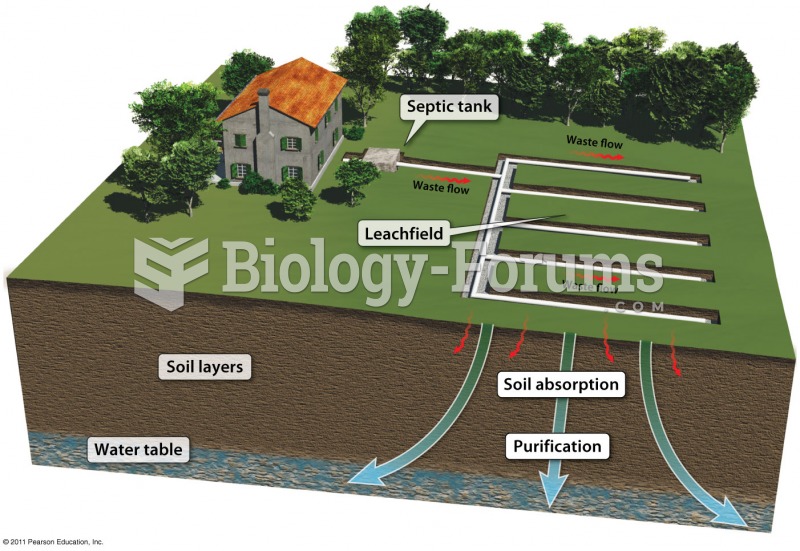|
|
|
More than 34,000 trademarked medication names and more than 10,000 generic medication names are in use in the United States.
Eat fiber! A diet high in fiber can help lower cholesterol levels by as much as 10%.
Drug abusers experience the following scenario: The pleasure given by their drug (or drugs) of choice is so strong that it is difficult to eradicate even after years of staying away from the substances involved. Certain triggers may cause a drug abuser to relapse. Research shows that long-term drug abuse results in significant changes in brain function that persist long after an individual stops using drugs. It is most important to realize that the same is true of not just illegal substances but alcohol and tobacco as well.
Multiple experimental evidences have confirmed that at the molecular level, cancer is caused by lesions in cellular DNA.
In 1864, the first barbiturate (barbituric acid) was synthesized.







